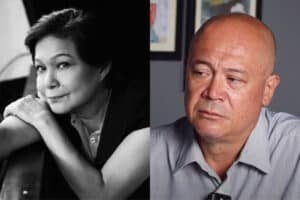THE SECURITIES and Exchange Commission has obtained the go-ahead from the Court of Appeals to proceed with the dissolution and liquidation of the Uniwide group.
In an April 13 resolution issued by its special 9th division, the Court of Appeals also cited the Uniwide group owner Jimmy Gow and several company officials for “forum-shopping,” noting that the group was after exactly the same remedies already sought previously and which CA’s second division had already resolved. They were ordered to pay P2,000 within 15 days of notice.
An entry of judgment had been issued on Jan. 5, 2016 by the CA that ordered with finality the liquidation of Uniwide.
In a 36-page resolution, the CA said that when the SEC issued the decision to terminate the rehabilitation proceedings of Uniwide in 2013, rehabilitation was no longer feasible. Citing the representation of the Uniwide group itself, the court said this group had an outstanding debt of P5.553 billion while its rehabilitation plan principally involved the dacion en pago—referring to payment of debt using assets—of Metromall property.
“It must be emphasized here that the value of Metromall property was found to be only P660 million when it was appraised in April 2008. Moreover, the same property is mortgaged to Allied Bank and PNB; therefore, it cannot be easily transferred to unsecured creditors as the Uniwide group proposed,” the court said.
The Uniwide group led by Gow—consisting of Uniwide Sales Inc., Uniwide Holdings Inc., NAIC Resources and Development Corp. et al.—filed the case at the CA to challenge the SEC en banc’s orders in 2013. The SEC en banc then affirmed the decisions of the SEC hearing panel, including the dismissal of a motion to approve another revision to the rehabilitation plan and the order to proceed with dissolution and liquidation.
The Uniwide group was once a multibillion dollar business with several warehouse clubs, malls and stores catering to the lower-income market. It embarked on a massive expansion and diversification program, supported by loans from big banks, reaching the peak of its success as a business venture in the early part of the 1990s.
When the Asian currency turmoil erupted in 1997, however, the group was affected by the credit crunch among banks and financial institutions. It encountered liquidity problems as banks scrambled for assets of debtors instead of lending new money.
The Uniwide group sought suspension of payments and rehabilitation in 1999. The group said that at that time, it had more than sufficient assets—worth about P20 billion—to pay for its obligations worth P11 billion. The SEC ordered suspension of debt payments that same year and created an interim receivership committee. Over the years, several revisions were made to the rehabilitation plan. Doris Dumlao-Abadilla


